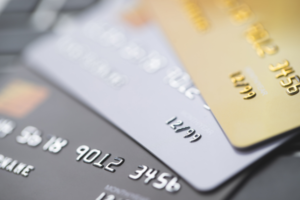
Borrowing Wisely in Canada: What to Do and What to Avoid
Taking out a loan is like playing a game with two sides to the same coin. On the other hand, responsible borrowing will assist you in establishing a strong credit score, which will allow you to qualify for more essential loans or lines of credit, such as a mortgage. However, depending on how well you manage your finances, taking out loans can have a negative impact on your life when mismanaged.
In this day and age, it is practically hard to survive without credit. Many services today demand customers to have a credit card, and if you want to make a significant purchase, such as a car or a house, you can’t survive without credit. If you manage your finances responsibly, having credit may be a beneficial tool.
In contrast, borrowing money is nothing to be afraid of. It’s possible to get back on the path to financial stability if you do it correctly.
What Does “Credit” Mean?

Credit can be defined as money that is borrowed to make purchases. It encompasses any loans, financing, and purchases made with a credit card. You have committed to repay the money that you have borrowed, in addition to an agreed-upon percentage of interest.
The additional sum represents the cost that is incurred as a result of taking out the loan, which often takes the form of fees and interest payments.
Using Credit Wisely
- Create a spending plan for yourself and commit to following it. Be sure that you are aware of everything that is entering and leaving your credit. You will prevent unforeseen problems with your credit card statement if you proceed in this manner.
- Avoid spontaneous purchases. Would you still make this purchase if you were required to pay with cash only?
- Use extreme caution if you are asked to co-sign a loan or provide a guarantee for someone else’s loan. Keep in mind that you may be responsible for repaying the loan if the debtor cannot meet their obligations. Put the borrower through their paces by questioning them; just as a lender would. You must be aware of the potential dangers before making such a choice.
- Be informed about the fees associated with using credit. Are you utilizing the appropriate type for what you need it for? Are you making use of a type of credit that carries a higher interest rate than what is required?
- Limit the number of credit cards you carry with you to what is reasonable. How many are you going to need, exactly? Don’t use them merely because you possess them.
- Make sure you keep an account of all of your purchases made with credit. Never throw away your receipts; use them to cross-check your monthly accounts and keep track of your debts.
- Try to pay the full amount of your monthly charge in full.
- Even if you are unable to pay the whole amount each month, you should make an effort to pay more than the bare minimum that is required. This will help in lowering the overall interest and finance charges that you are responsible for paying on the money that you have borrowed.
- Make sure that you make your payments on time to avoid incurring late fees and safeguard your credit history.
Mistakes to Avoid When Taking Out Credit

There are several benefits to having a strong credit score, including lower interest rates on personal loans and mortgages, as well as better chances of being accepted for the best credit cards. But even the smartest people make mistakes with their credit from time to time. Here are some of the mistakes to avoid when taking out credit:
Ignoring Credit Reports
Check your credit report annually to ensure it’s accurate, up-to-date, free of errors, and fraudulent accounts. There can be small mistakes, like wrong personal information or misspelled names and addresses. Alternatively, there could be huge blunders, such as accounts that don’t belong to you or inaccurate payment history that could hurt your credit.
Disputes can be filed with the credit bureaus if you find incorrect, inaccurate, or fraudulent data on your credit report.
Once a year, you are entitled to a free credit report from Equifax and TransUnion. Checking your personal credit report does not affect your score, so be sure to do it.
Avoiding the Use of Credit
If you do not have credit, it will be very difficult, if not impossible, to get into debt. However, if you do not have credit, it will also be very difficult to buy a house or a car unless you intend to pay for each one in full. While it’s good to be debt-free, saving up for major expenditures might take years—or even decades. Even getting an apartment might be difficult without a credit record, since most landlords need a copy.
As long as your payments are made on time and you pay off the total sum on your credit card, you won’t have any problems. Maintaining self-control will prevent you from acting irresponsibly and making rash choices regarding your financial resources.
Late Payment
Both late and missed payments hurt your credit. Make the minimum monthly payment by the due date. A person’s credit rating is heavily influenced by their payment history, which accounts for about 35% of their total credit score. Even one late payment can have major repercussions.
Set up automated payments from your checking account to your credit card to avoid missing payments. Email or calendar reminders might help you keep track of several credit card payments. Missing a payment requires immediate action. Most card issuers only reveal missed payments after 30 days, so call them and make a payment as soon as possible. Though you can fix and increase your credit score when damaged, it’s better to avoid such issues when you can.
Credit Card Maxing Out
Issuers grant you credit. However, just because they have established a particular limit for you does not mean that you are free to utilize all of it (or even the majority of it) every month. Your credit utilization ratio will rise. That’s bad.
Even if you are current with your payments, having a sizable outstanding balance or using your credit card to its maximum limit can be interpreted by lenders as an indication that you have an unhealthy relationship with debt and are overextended financially. It also means that your minimum payments will be higher, making them harder to pay off, and it means you’re more likely to go over your credit limit, which can cost you more money and hurt your credit score.
Lenders don’t define a “big balance” by its dollar amount, but by its proportion to your credit limit. Ideal credit utilization is 30% or below. High credit use hurts credit scores.
Conclusion
It’s one thing to borrow money, it’s another thing to do it smartly. It presents you with more and better opportunities to achieve your financial goals. The tips stated above are simple enough to follow if you are determined to do them, as well as knowing the significance of making such an effort.
Also, you can be disciplined in the use of your credit, and before you know it, you find yourself unable to control the situation, as you slowly start drowning in debt. Don’t panic, as we learn everyday that there are debt solutions available at EmpireOne Credit. We have debt experts that would listen to your story and offer the solution you need. There are debt relief options like filing for bankruptcy, or a consumer proposal, debt consolidation which you may already know, but we will discuss with you what your options are and which is the best for your current situation.





